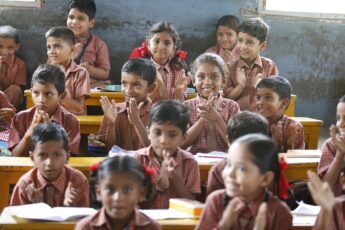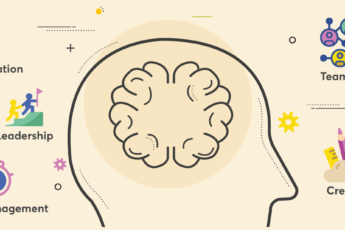Is Modern Education Ending Rote Learning in India?
Rote learning is well embedded in the Indian education sector and there’s no denying that. The best of the schools and coaching classes wouldn’t shy away from admitting this harsh truth. We don’t know who to blame for instilling the rote learning culture in the Indian education ecosystem – strict teachers, the educators, or the education sector as a whole? While we can’t put a finger on who started it, we definitely understand and acknowledge the need to rise above it.
Students have been practicing rote learning for decades now. Some students study to only pass an exam. Their rote learning habits are so bad they may not even be able to answer any questions after an exam is over with. This bad practice of studying doesn’t develop a child’s mind, contributing absolutely no knowledge or learning.
🖊️ Take a look at the characteristics of rote learning:
- Mechanical learning
- Arbitrarily related content
- Information is easy to forget
- Data is stored in short-term memory
The biggest disadvantage of rote learning is that the children are not motivated to learn any concept in depth or further explore anything related to the concept. One of the most relevant examples of rote learning is how all students learn tables by multiple repetitions, without knowing why they have to learn tables.
Children first need to be introduced to the concept of tables and why they need to learn them. Having enough knowledge on the application of tables and how it could help them in future may inspire students to learn tables differently.
We put emphasis on modern way of education to change the age-old methods of children as well as educators alike. Some of the approaches of modern education that need to be instilled in children and educators include:
🖊️ Mindful Learning:
In this approach teachers are expected to teach a concept in depth and also give information related to the concept. As to when and in what situations it could be useful for children to learn that particular concept. This helps children co-relate the importance and this could help make children mindful about the career and subject choices they intend to make. These modern teaching practices help children develop a habit to indulge in critical thinking and problem solving.
🖊️ Cognitive Learning
This is an active type of learning that encourages children to use their brain more effectively. The idea is to fully engage children contrary to memorization with repetition. Cognitive learning uses various strategies that benefit children in ways more than one. Some of the helpful cognitive strategies include encouraging active discussion among children, teaching students how they can connect ideas, guide them to justify their answers, and have them consciously reflect on their learnings. Besides these learning habits, it’s also important for children to keep up with technology for there’s no end to the list of benefits of technology in education.
🖊️ Emotional Intelligence
It is imperative for children to understand their emotions and be aware of their reflexes and reactions. Embedding emotional intelligence among young infants not only teaches them social skills but helps them understand situations better. Talking about emotions with children can help them cope with their feelings at school and in social situations. Some children have a hard time facing failure, and this becomes very obvious in the way they react to losing at a game or getting a low score at a test. If they don’t react well in these situations, it’s time to start by making the shift in their behavior.
Mindful and cognitive learning habits when consciously practiced by students and teachers alike can change the entire scope of education. These practices also help the children, teachers, and parents realize whether the child is a visual learner, auditory learner, or kinaesthetic learner. Besides, children develop a habit of looking at the big picture when learning small concepts, and can efficiently achieve a big task at hand.
When these skills are embedded in children at a young age they grow into mindful adults who learn a number of life skills to handle different situations. Square Panda India is working towards changing the approach of learning in India at the grassroot level. This could result in a great shift of attitude and critical thinking among young adults, which gradually will result in sustainable development. To know more about Square Panda’s initiative, visit https://ecce.squarepanda.in/




Leave a Comment